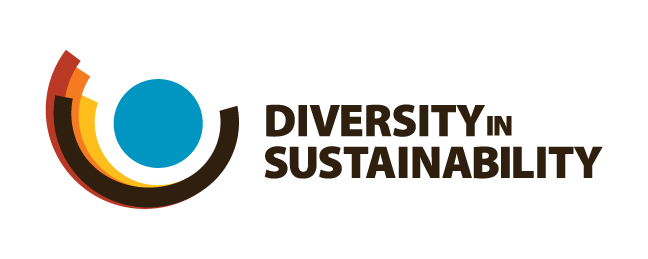
Sessions
More details are available below on each of the sessions, including survey findings, target groups, key questions, and status of sponsorship by pressing the + symbol beside each session.
-
Target group:
Recruiters
Survey findings:
Respondents to the survey have found that recruiters play a gatekeeping role, and any bias from a recruitment agency affects the opportunities that candidates have access to. This also prevents “rising talent” from being considered.
Key questions:
How do you ensure that you source diverse talent for your clients?
What dynamics in recruitment prevent diverse talent from being included?
Status of sponsorship:
Not yet funded
Co-host:
Acre
-
Target groups:
Human Resources leaders
Survey findings:
Human resources teams, particularly in smaller organizations, are tasked with a wide range of responsibilities to serve the needs of management and their employees. The level of change required to create an inclusive organization can surpass the resources available and the span of responsibility of the HR team. DEI work can also get into tricky territory, causing tensions with other objectives.
Key questions:
How can you attract diverse employees?
How can you build an inclusive culture of belonging?
How do you advance employees of colour and Indigenous employees?Status of sponsorship:
Attraction - not yet funded
Retention - not yet funded
Advancement - not yet funded
-
Target groups:
Admissions, Academics, Career Centre/Services professionals
Survey findings:
Our survey showed that the younger the sustainability practitioner, the more diverse they were – this was particularly acute for post-secondary age respondents. Therefore, as the embarkation point for many in sustainability, educational institutions need to prepare students for what lays ahead in the workplace through admissions, curricula and career services.
Key questions:
How do you attract diverse students to sustainability classes/programs/majors on campus? How do you build an inclusive culture on campus?
How do you create an inclusive community and support diverse students in sustainability classes/programs/majors?
How do you prepare students for future sustainability careers and workplaces?Status of sponsorship:
Admissions, Academics, Career Centre professionals - partially funded by RBC Foundation
Co-hosts:
AASHE, Duke University, Humber College
-
Target groups:
Organizational leaders in sustainability organizations and leaders of sustainability teams
Survey findings:
From the sample, White men tend to hold more senior roles. Of all respondents, 10% are organizational leads and 27% are leadership team members. However, looking specifically at White men, 16% are organizational leads and 37% are leadership team members.
Key questions:
How do you manage the tension between meeting organizational objectives and creating an inclusive workplace?
How can privilege be shared with others?
How is an inclusive culture created?Status of sponsorship:
Funded by Partners in Project Green -
Target groups:
BIPOC/BAME sustainability leaders
Survey findings:
Some practitioners of colour are breaking into leadership teams in sustainability organizations, particularly amongst South Asian, Multiracial and Latine groups. These leaders have often had to overcome significant barriers in hostile environments to get where they are as the “first of”.
Key questions:
What is the responsibility of BIPOC/BAME senior executives to help the next generation of BIPOC/BAME sustainability professionals?
Status of sponsorship:
Funded by Partners in Project Green
-
Target groups:
White sustainability practitioners
Survey findings:
In our survey, White sustainability practitioners, particularly White women, felt the least confident that they knew how to be an ally to diverse individuals. Yet, as the group that makes up the majority of the sector, this group’s support as an ally is needed more than ever.
Key questions:
How can you best show up as an ally for diverse colleagues and community?
What prevents you from doing so?
Status of sponsorship:
Not yet funded
Co-host:
Lis Best
-
Target groups:
Sustainability practitioners from challenging socioeconomic circumstances
Survey findings:
Our survey showed that Sustainability is an elite and privileged profession – 75% of respondents come from middle class backgrounds and 62% have at least a Master’s degree. Respondents that came from a blue collar or materially poor household were least likely to feel included in sustainability organizations and saw the last opportunity for career progression.
Key questions:
How do we ensure that it is not only people of means working in sustainability?
Status of sponsorship:
Not yet fundedCo-host:
Lis Best
-
Target groups:
Sustainability practitioners who identify as:
(1) Black
(2) East/Southeast Asian
(3) Hispanic/ Latine (COMPLETED)
(4) Indigenous(5) Middle Eastern/North African
(6) Multiethnic
(7) South AsianSurvey findings:
According to our survey, communities of colour are least likely to feel that their workplaces are inclusive or places where they can progress their careers. In organizations where diversity is not the norm, practitioners of colour can face specific stereotypes about their communities that lead to assumptions about who they are and how they perform in the organization, and ultimately, whether or not they stay in the organization or the sector.
Having overlapping identities, whether gender identity and expression, race, ethnicity, class, religious beliefs, sexual identity and expression – can lead to multiple burdens in the workplace for those with intersectional identities. Our survey results showed that progression was more difficult for those with intersectional identities, and certain groups were less equipped to deal with bullying and harassment.
Key questions:
What stereotypes - positive or negative - do people have about our racial/ethnic group?
How does this affect our career choices, workplaces and advancement in the sector?
Status of sponsorship:
(1) Black - not yet funded(2) East/Southeast Asian - not yet funded
(3) Hispanic/ Latine - co-host and funder: Hispanic Access Foundation
(4) Indigenous - not yet funded
(5) Middle Eastern/North African - not yet funded
(6) Multiethnic - not yet funded
(7) South Asian - not yet funded, co-host: South Asians for Sustainability
-
(COMPLETED)
Target group:
BIPOC/BAME youth interested in entering sustainability (ages 18-25)
Survey findings:
Our survey showed that the youth who are interested in entering the field are much more diverse than older practitioners in the field and will have different expectations. As a result, current practitioners will need to adjust to new realities to avoid a dropoff in retention.
Key questions:
Do youth feel that this is a field that they can make a future in?
What barriers prevent them from doing so?
What would help them enter the field?
What skills do they need help to develop?Status of sponsorship:
Funded by RBC Foundation
Co-host:
RBC Foundation
Do these sessions sound compelling to you?
Register your interest by filling out the Expression of Interest below.

